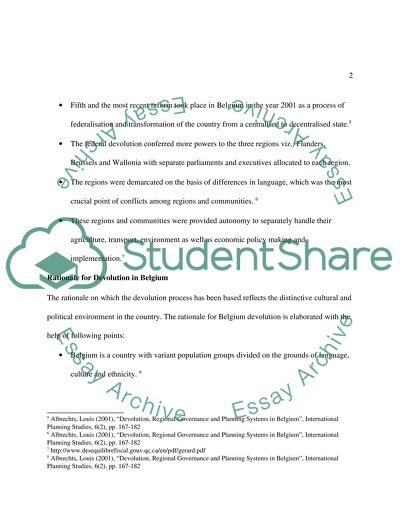Cite this document
(Devolution in Belgium Case Study Example | Topics and Well Written Essays - 1750 words, n.d.)
Devolution in Belgium Case Study Example | Topics and Well Written Essays - 1750 words. Retrieved from https://studentshare.org/politics/1539049-belgium-devolution-rationale-and-mechanisms-relationship-to-national-and-local-government-extent-of-powers
Devolution in Belgium Case Study Example | Topics and Well Written Essays - 1750 words. Retrieved from https://studentshare.org/politics/1539049-belgium-devolution-rationale-and-mechanisms-relationship-to-national-and-local-government-extent-of-powers
(Devolution in Belgium Case Study Example | Topics and Well Written Essays - 1750 Words)
Devolution in Belgium Case Study Example | Topics and Well Written Essays - 1750 Words. https://studentshare.org/politics/1539049-belgium-devolution-rationale-and-mechanisms-relationship-to-national-and-local-government-extent-of-powers.
Devolution in Belgium Case Study Example | Topics and Well Written Essays - 1750 Words. https://studentshare.org/politics/1539049-belgium-devolution-rationale-and-mechanisms-relationship-to-national-and-local-government-extent-of-powers.
“Devolution in Belgium Case Study Example | Topics and Well Written Essays - 1750 Words”. https://studentshare.org/politics/1539049-belgium-devolution-rationale-and-mechanisms-relationship-to-national-and-local-government-extent-of-powers.


